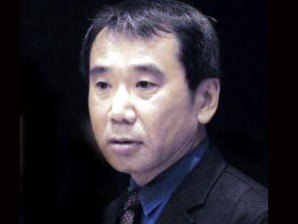Author Murakami wades into Japan-China island row

Haruki Murakami/ AFP FILE PHOTO
TOKYO—Haruki Murakami, one of the world’s foremost novelists, waded into the territorial row between China and Japan on Friday, warning of the peril of politicians offering the “cheap liquor” of nationalism.
His intervention came as Beijing launched a blistering attack on Tokyo at the United Nations, accusing Tokyo of theft, as the dispute over the ownership of a chain of islands intensified.
The Japanese author of “Norwegian Wood” said cool heads should prevail.
Writing in the liberal-leaning Asahi Shimbun, Murakami, who has been tipped as a future Nobel laureate, said disputes over land existed because of the unfortunate system of dividing humanity into countries with national borders.
“When a territorial issue ceases to be a practical matter and enters the realm of ‘national emotions’, it creates a dangerous situation with no exit.
Article continues after this advertisement“It is like cheap liquor. Cheap liquor gets you drunk after only a few shots and makes you hysterical.
Article continues after this advertisement“It makes you speak loudly and act rudely… But after your drunken rampage you are left with nothing but an awful headache the next morning.
“We must be careful about politicians and polemicists who lavish us with this cheap liquor and fan this kind of rampage,” he wrote.
The ownership of the uninhabited but strategically-coveted Senkaku islands has been a running sore in relations between China and Japan for decades.
Tokyo administers them, but Beijing claims them under the name the Diaoyu Islands.
Tensions between two of the world’s largest economies began bubbling earlier this year when the nationalist governor of Tokyo said he wanted to buy and develop the islands.
They spiked when the government swooped to nationalize them, a move Tokyo says was purely administrative but which Beijing lashed out at as a provocation.
The war of words continued Friday with Chinese Foreign Minister Yang Jiechi blasting Japan at the United Nations in New York.
“The moves taken by Japan are totally illegal and invalid,” he said.
“They can in no way change the historical fact that Japan stole Diaoyu and its affiliated islands from China and the fact that China has territorial sovereignty over them”.
The author said he was shocked by reports that books by Japanese writers had been removed from Chinese stores because of the dispute.
“One of the main purposes of cultural exchange is to bring about an understanding that we are all human beings who share emotions and inspirations, even if we speak different languages,” he wrote.
“That is, so to speak, the path through which souls can come and go beyond national borders.”
The author said he dearly hoped there would be no retaliation in kind by Japanese bookshops.
“You soon sober up after the buzz of cheap liquor passes,” he said. “But the path for souls to come and go must not be blocked.”
Murakami, who enjoys commercial and critical success around the world with his intricately crafted tales of the absurdity and loneliness of modern life, has never shied away from controversy.
When he received the 2009 Jerusalem Prize, Israel’s highest literary honor for foreign writers, he obliquely criticized the Middle East conflict.
“If there is a hard, high wall and an egg that breaks against it, no matter how right the wall or how wrong the egg, I will stand on the side of the egg,” he said at the ceremony in Jerusalem.
His works, including the titles “Kafka on the Shore” and “The Wind-Up Bird Chronicle”, have been translated into almost 40 languages. He has a large following in China, South Korea and Taiwan, as well as in Europe.
He was awarded Spain’s Order of Arts and Letters in 2010 and the Czech Republic’s foremost literary award, the Franz Kafka Prize, in 2006.